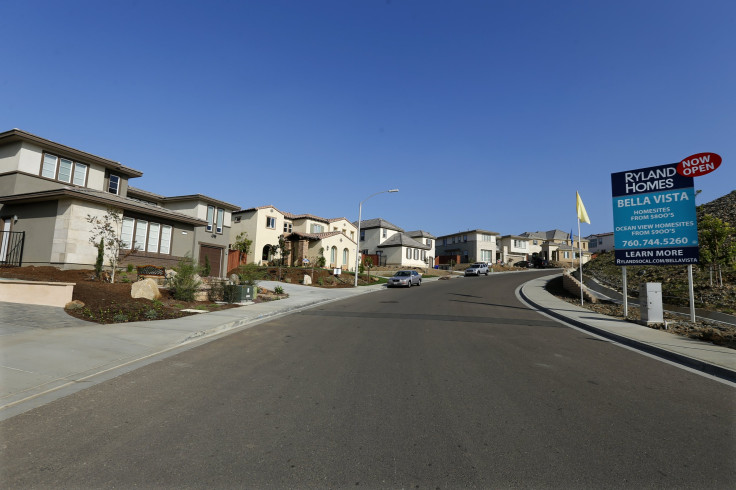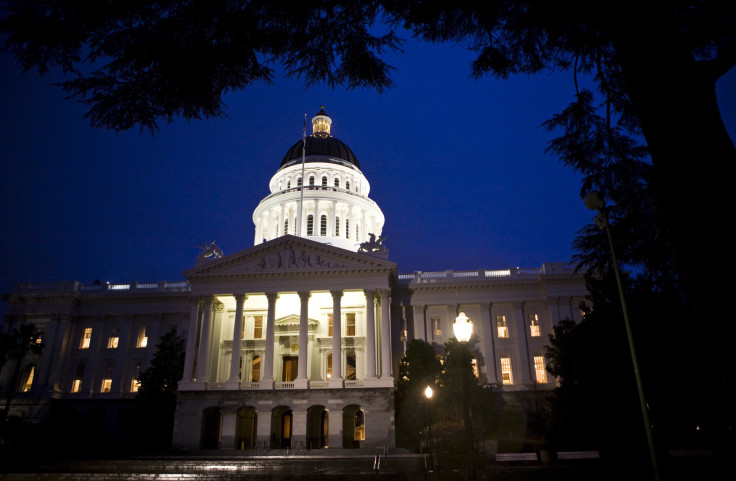Activists Vow To Reform Anti-Tax Prop. 13 — The ‘Third Rail’ Of California Politics

This story is being co-published with Capital & Main as part of a series on California Game Changers: Nine Big Ideas That Could Transform the State and Nation.
From the second floor of a boxy office complex in Los Angeles’ Koreatown, Kris Vosburgh spends his days monitoring potential threats to Proposition 13, the landmark ballot initiative that slashed property taxes in California and fueled a nationwide tax revolt. This has been his mission for nearly 30 years, and if he sounds confident over the phone, it’s a confidence he has earned. So far, he’s racked up many victories and not a single defeat.
Vosburgh is the head of the Howard Jarvis Taxpayers Association, named after the anti-tax crusader and politician who spearheaded Prop. 13. Jarvis died in 1986, but Vosburgh’s organization is determined to protect his political and economic legacy. The measure, which passed in 1978, capped property taxes in California at one percent and based those taxes on the value of the property in the year it was purchased, instead of its current market value.
The results have been dramatic. In the first year after implementation, property taxes—which fund the bulk of most local government services, such as schools—dropped 57 percent. Adjusted for inflation, that represented a cut of nearly $10 billion, and a gift to the state’s wealthiest residents. According to the California Legislative Analyst’s Office, most of the tax relief goes to residents who earn more than $120,000 a year. (In 2003, Warren Buffett noted that taxes on his $4 million mansion in Laguna Beach had increased just $23, thanks to Prop. 13, while jumping nearly $2,000 on his $500,000 house in Omaha.) Meanwhile, the huge budget shortfalls caused by Prop. 13 have led to dramatic increases in sales and utility taxes, which hit the poor the hardest.
Thus far, Vosburgh has helped to fend off a slew of legal challenges—taking one appeal all the way to the Supreme Court, which the association won 8 to 1—and watched as repeated efforts to amend Prop. 13 in Sacramento have fizzled.
What the HJTA hasn’t yet faced is a sustained ground campaign, but that will soon change. This spring, a coalition called Make It Fair—which includes powerhouse unions like the California Teachers Association (CTA) and the Service Employees International Union (SEIU), along with a host of community organizations—began to knock on doors and circulate an online petition calling for Prop. 13 to be amended. They identified 100,000 supporters and are currently rolling out a month-long series of town halls with elected officials in the liberal strongholds of Los Angeles and the San Francisco Bay Area, but also in San Diego, Bakersfield and the Inland Empire. The effort could turn into a ballot initiative as early as next year. (Disclosure: This website receives funding from CTA and SEIU.)

Ben Grieff, the campaign director for Evolve California, a statewide organizing group that is a member of Make It Fair, acknowledges that Vosburgh is right about one claim: If Prop. 13 is thought of simply as providing tax relief for homeowners, it can’t be defeated. Before Prop. 13, homeowners paid property taxes based on the current market value of their homes. If real estate prices skyrocketed—a not-infrequent occurrence in California—so did the taxes owed by homeowners, which could pose a serious hardship for elderly residents or others living on fixed incomes.
That talking point propelled Prop. 13 to victory, but Prop. 13 did a whole lot more.
What many people don’t know is that Prop. 13 also provides huge tax breaks to corporations. That’s because the strict limits on property taxes also apply to commercial properties. An elderly homeowner benefits from Prop. 13, but so does the Walt Disney Corporation. “People voted for Prop. 13 to keep people in their homes,” says Grieff. “It wasn’t supposed to be a windfall for large commercial property owners.” The Make it Fair coalition hopes to amend the measure to exclude commercial properties, so that they are taxed based on their current market value.
This small change would open up a massive new funding stream for the state of California. In a 2015 report, economists at the University of Southern California's Program for Environmental and Regional Equity (PERE) estimated California would receive between $8.2 to $10.2 billion in additional revenue if commercial and industrial property owners were taxed based on the current market value of their holdings. Jennifer Ito, PERE's research director and a coauthor of the study, is currently updating the report with data through 2016. From what she’s seen thus far, she expects to revise the revenue estimates upwards.
The wealthiest corporations reap the vast majority of the benefits from Prop. 13’s commercial tax loophole, as they have owned their properties for the longest period and often engage in complicated transactions to obscure changes in ownership, which would otherwise trigger a reassessment of the property’s value. According to the Make It Fair coalition, property owners or investors who hold more than $1 million in real estate account for 90 percent of the savings generated by the loophole. The additional $8.2 to $10.2 billion or so could go a long ways toward funding the state’s education and infrastructure needs, and perhaps provide some tax relief for poor and working-class Californians.
Ito considers the current effort to amend Prop. 13 as a natural outgrowth of the many years that local groups spent organizing in opposition to specific budget cuts. Instead of fighting over local programs, she says, they have realized that “more can be done if we look at the root cause of the problem, and they have shifted to look at California’s tax policy.”
Once you do that, Ito contends, ignoring the inequities of Prop. 13 is simply not possible. In 2012, voters passed Proposition 30, which raised taxes on high earners to temporarily fix a budget shortfall. Last year, with Prop 30 set to expire, voters passed Prop 55, which maintained the income tax hike for California’s highest earners. It, too, has an expiration date -- 2030. But a Prop. 13 amendment would be a permanent funding stream.
“It’s been an issue that no politician wants to touch,” Ito tells me. “Until recently.”
Kris Vosburgh doesn't sound particularly worried about the public sector unions and “far left Occupy Wall Street types” he claims have always sought to chip away at Prop. 13. “We estimate that if it were on the ballot today, we’d get more votes than we did before,” Vosburgh says. (In 1978, nearly 63 percent voted in favor of Prop. 13.) In focus groups, he says, his group finds that 90 percent of Republicans support the measure, along with 50 percent of Democrats. “No one wants to buy a home and then be taxed out of that home.”
Grieff knows that the campaign faces an uphill battle. If it successfully gathers the more than 500,000 signatures needed to place the amendment on the ballot for 2018, the opposition will be fierce. “They are going to spend tens of millions of dollars to keep this special deal that they have here in California,” he says. And he’s certainly aware of the cliché about Prop. 13: That it’s the third rail of California politics, and best not to touch. But he argues that the past year has proven the rules of politics can change, and quickly.
“We’re out there talking to people about this $9 billion dollar loophole, and they get it,” he says. “They already have a sense that corporations aren’t paying their fair share. The pundits aren’t out talking to people. They’re talking to themselves in Washington DC or Sacramento. People are ready for this, and I don’t think anyone can say that it can’t happen.”
© Copyright IBTimes 2024. All rights reserved.





















